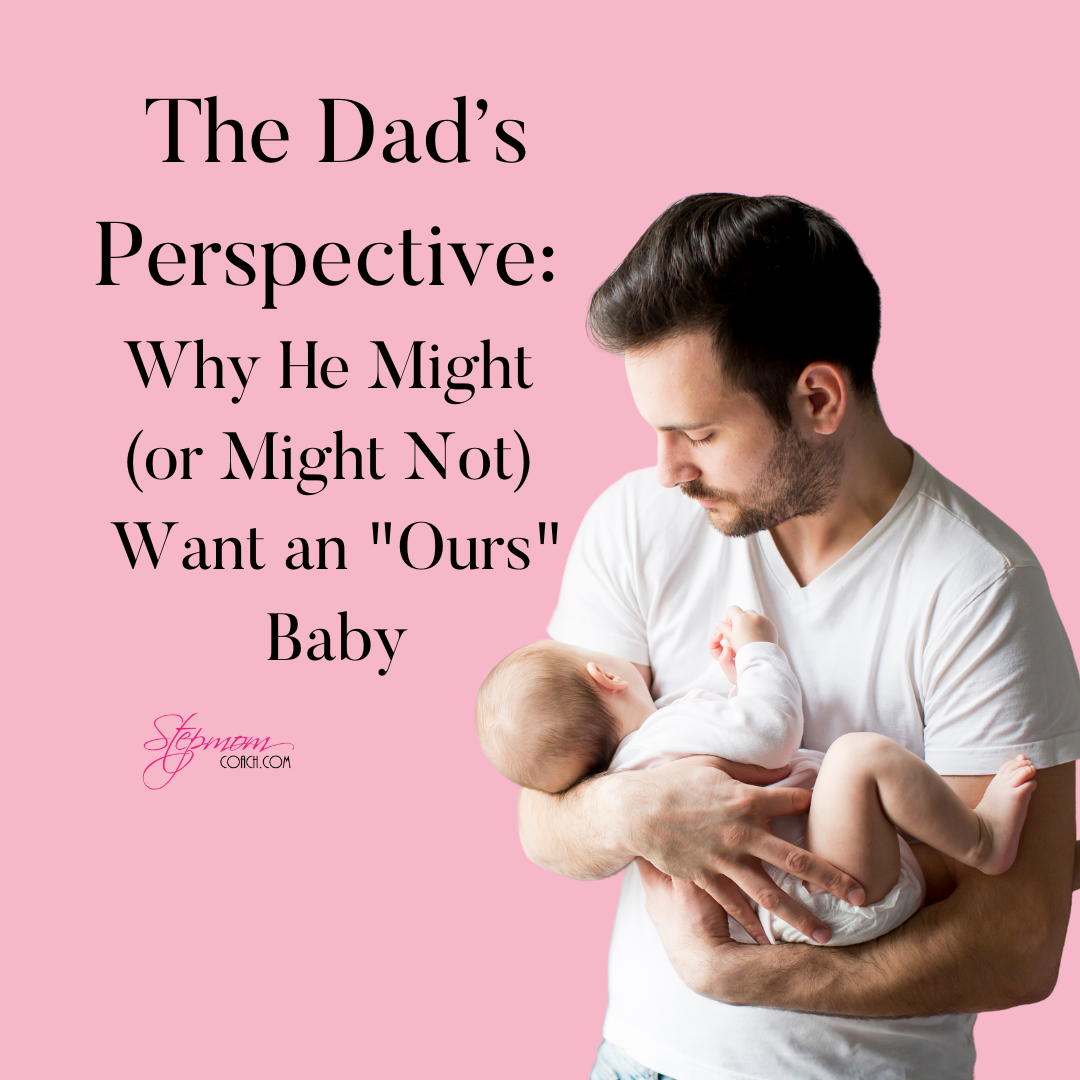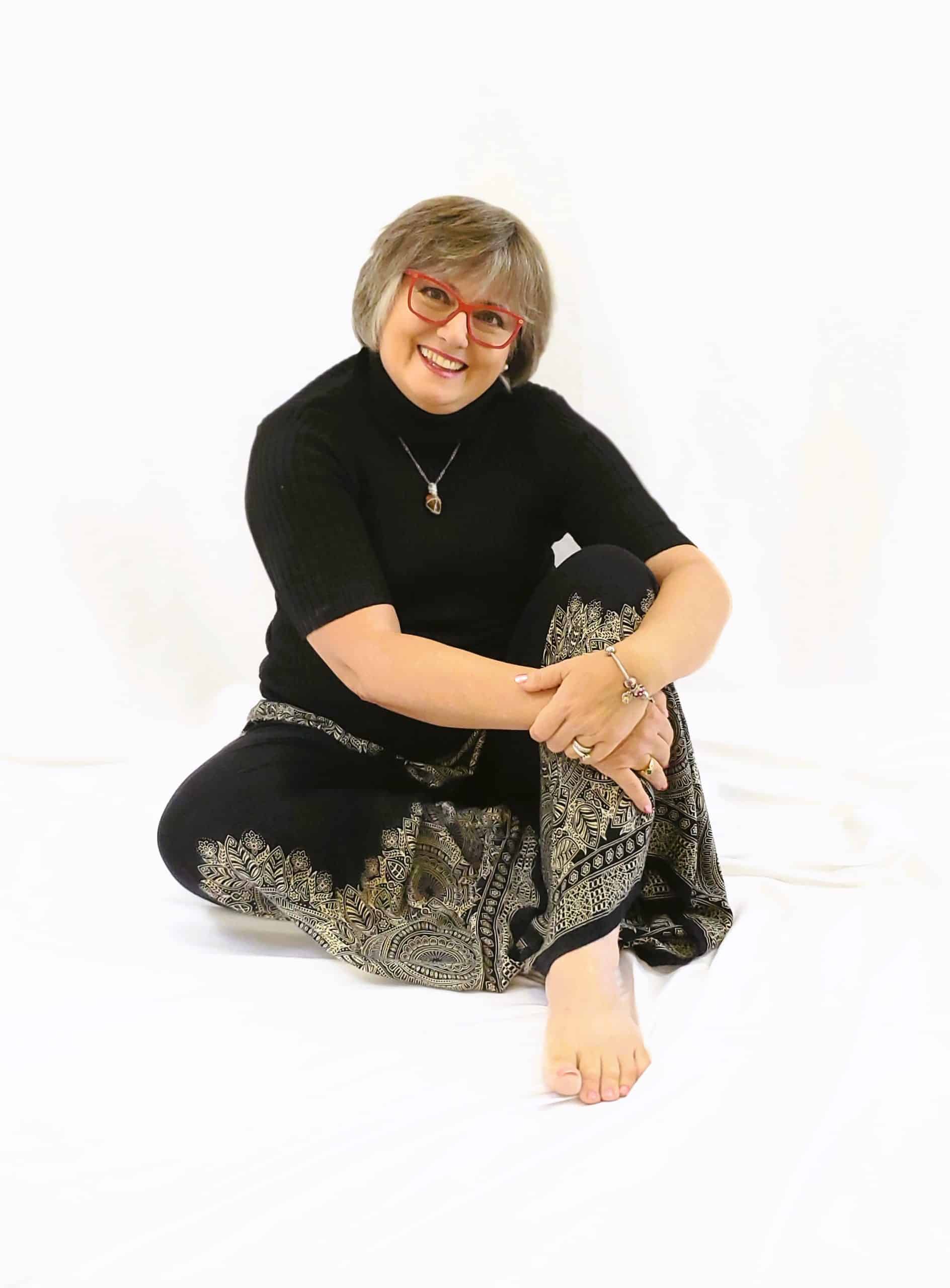The Dad’s Perspective:
Why He Might (or Might Not)
Want an "Ours" Baby
The decision to have a child together is a major step for any couple, but it can be even more complex in blended families. When Bernard and I began our relationship, we quickly faced this question: Would having an "ours" baby strengthen our bond, or would it complicate our already intricate family dynamics? In this post, I'll share our experiences and explore the factors that dads should consider before making this decision.
When remarried couples in a stepfamily start thinking about having an "ours" baby, the decision is often shaped by a wide range of emotions and practical considerations. While it may seem like a natural next step in creating a blended family, not every dad is eager to make the decision to have another child. Some dads are enthusiastic about the idea of a common child, viewing it as a way to solidify the relationship, while others, like Bernard, have valid concerns about how a new baby might impact their current family dynamics.
In this post, we’ll explore why a dad might consider having an "ours" baby and examine some of the factors that may give him pause. Understanding these reasons can help couples have more open and honest conversations about whether having a child together is the right choice for their family.
Strengthening the Relationship: A Symbol of Commitment
For many dads, having an "ours" baby symbolizes a deep commitment to their new partner and the remarriage. A common child can be seen as a way to strengthen the bond between partners, giving them something uniquely shared that connects both of them to the family in a biological and emotional sense.
Research by Katya Ivanova and Nicoletta Balbo (2019) shows that the birth of a common child can increase relationship satisfaction, especially for stepparents who may have previously felt like outsiders in the family. The "ours" baby provides a biological link that can help a dad feel more grounded in his new family. This is sometimes referred to as the "cement baby" concept, where the child helps solidify the relationship and reduce uncertainties about the future of the family.
Why a Dad Might Want an "Ours" Baby:
- To create a shared bond with his new partner that further commits both of them to their blended family.
- The baby symbolizes the couple’s long-term commitment to the remarriage.
- The child offers an opportunity to build a new family identity and culture, especially if the dad feels his new family dynamic could use this unifying experience.
- An opportunity to start over, especially if he wasn’t very involved in his first marriage or with his kids.
Concerns About Existing Children: Displacement and Attention
While some dads embrace the idea of having an "ours" baby, others hesitate due to concerns about their existing children. Biological parents may worry that a new baby will lead their older children from a previous relationship to feel displaced or jealous. Research by DeLongis and Zwicker (2017) highlights how children can become a primary source of conflict in stepfamilies, especially when resource distribution—whether time, attention, or finances—becomes an issue.
For a dad, the fear of damaging his relationship with his older children may outweigh the excitement of having another child. He may be concerned that his kids will feel sidelined by the arrival of a new sibling or that they’ll perceive the baby as receiving more love and attention.
Why a Dad Might Be Hesitant About an "Ours" Baby:
- Fear that his existing children will feel displaced or less important.
- Concerns about balancing time and attention between the new baby and older children.
- Worry that the introduction of an "ours" baby will intensify existing tensions with stepchildren or with the ex-spouse.
The Complexity of Blended Family Relationships
Blended families are inherently complex, with multiple relationships that need to be nurtured and managed. Adding a new baby to the mix can further complicate these dynamics, especially when the dad is already navigating co-parenting with an ex-spouse, managing relationships with stepchildren, and trying to build a cohesive family unit.
As DeLongis and Zwicker (2019) noted, stepfamily relationships involve multiple subsystems, including biological parent-child dyads, stepparent-child dyads, and relationships with ex-partners. The birth of an "ours" baby adds another layer to this structure, and not all dads are ready for the additional emotional and logistical challenges.
Why a Dad Might Be Reluctant:
- Fear that adding a baby will further complicate already delicate family relationships. This was our situation.
- Concern about managing co-parenting with an ex while introducing a new child.
- Uncertainty about how the new baby will fit into the existing family dynamic and whether it will exacerbate tensions.
The Financial and Practical Considerations
For many dads, the decision to have another child isn’t just about emotions—it’s also about practical considerations. As I shared in a previous post about Bernard’s concern about the financial responsibility and strain we were under, this is often at the forefront of many fathers’ concerns. Raising a child is expensive, and when blended families already face challenges related to financial strain, the thought of adding another child can feel overwhelming.
Many dads, especially those who are older or nearing retirement, may be worried about the long-term financial impact of having another child. As Bernard shared with me in our conversations, he didn’t want to face the prospect of reaching retirement age while still raising a teenager and managing the costs of college, marriage, or other major expenses.
Why a Dad Might Be Hesitant:
- Concern about the financial burden of raising another child, particularly if the family is already financially strained.
- The practical reality of being older and not wanting to "start over" with the responsibilities of raising a new baby.
- The desire to focus on enjoying time with a partner or existing children, without adding the demands of a new baby to the mix.
The Emotional Toll of Stepfamily Life
Stepfamily life can be emotionally exhausting. Dads who have already gone through the ups and downs of divorce, co-parenting, and managing relationships with stepchildren may feel that adding a baby would be too much to handle. Depression, linked to the stresses of stepfamily life, is also a factor. DeLongis and Zwicker (2019) found that stepparents, particularly stepmothers, often experience heightened levels of stress and depression, which can spill over into the couple’s relationship.
For some dads, the idea of introducing a new baby into an already complicated family dynamic feels overwhelming, and they may fear that it will add unnecessary strain to their relationship with their new spouse.
Why a Dad Might Be Hesitant:
- Emotional exhaustion from dealing with stepfamily complexities and reluctance to take on more responsibilities.
- Concern that the birth of a new child could put additional pressure on the marriage, especially if the current family situation is already challenging.
- Fear that existing family tensions will worsen, rather than improve, with the addition of a new baby.
Building a Strong Foundation Before Deciding
Whether or not to have an "ours" baby is an intensely personal decision, and it’s essential for both partners to have honest conversations about their hopes, fears, and expectations. A strong, unified relationship is the best foundation for navigating the challenges that come with blending families and introducing a new baby. Ivanova’s research (2019) suggests that while relationship satisfaction often increases after the birth of a common child, there can be temporary declines due to the caregiving demands and complexities of stepfamily life.
Key Considerations:
- How stable is your current relationship? Address any existing issues with stepchildren, co-parenting, or the ex-partner before making the decision to have a child together.
- Are both partners emotionally ready for the added responsibility of a new baby?
- Have open conversations about financial concerns, caregiving responsibilities, and expectations for how the new baby will fit into your blended family.
Ultimately, the decision to have an "ours" baby is a deeply personal one. As we've discussed, there are numerous factors to consider, from strengthening relationships to navigating potential challenges. By carefully weighing the pros and cons and having open, honest conversations with your partner, you can make the best decision for your family. Remember, there's no right or wrong answer, and the most important thing is to choose what feels right for you.
In the final part of this series, we’ll offer additional considerations and practical tips for those thinking about having an "ours" baby in a stepfamily. Stay tuned!


